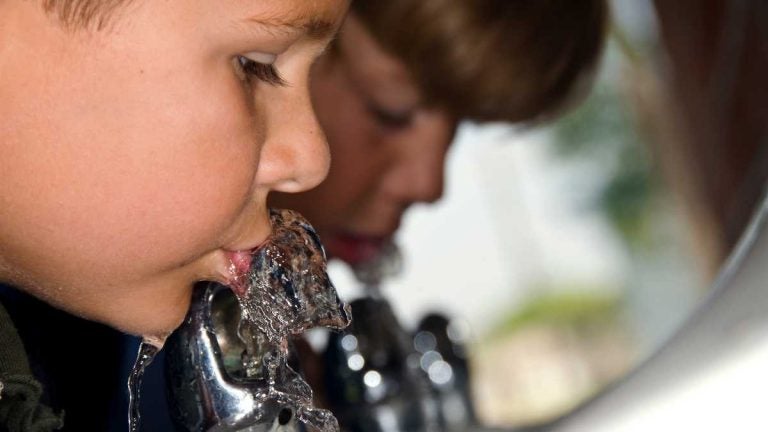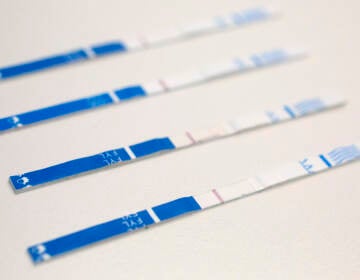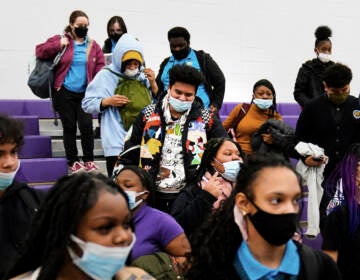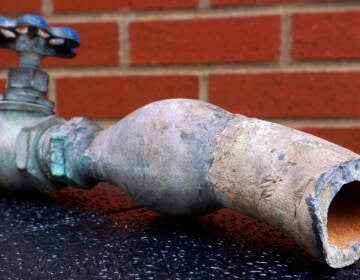Lead found in the drinking water of 400 New Jersey schools

(Kelpfish/Bigstock)
Nearly 400 schools reported finding lead in at least one drinking-water outlet in their buildings, according to data compiled by the state Department of Education from mandatory testing of all districts.
The results further amplify an initial compilation of lead-testing results compiled by New Jersey Future, an analysis that found the state’s problems with lead in drinking water are so pervasive that the contaminant is found in school districts of all types and sizes, and all geographic areas of the state.
Gov. Chris Christie ordered the mandatory testing of all school districts in May 2016 in the wake of reports that dozens of schools had found unsafe levels of lead in drinking fountains at their facilities.
Test results
As of the end of August, the Department of Education had received notification from 201 districts and charter schools (a total of 397 schools) of at least one of their test results coming back above the minimum level, according to David Saenz, a spokesman for the department.
The results confirm lead leaching from old fixtures and pipes is an extensive problem facing the state’s schools, a problem many suspected would be uncovered when the statewide results were reported to the agency.
“It’s not new that it is a problem and that people have known about it,’’ said Chris Sturm, managing director for policy and water at New Jersey Future. “This is a statewide problem that needs statewide attention.’’
While the state is reimbursing the districts for the cost of the testing, the more daunting problem is finding the money to help communities permanently fix the leaching of lead into drinking supplies, a much more expensive proposition.
“We know this is a serious problem, especially for older, urban districts,’’ Sturm noted. “These districts need long-term financial assistance.’’
As a first step, however, the group is recommending more comprehensive and standardized data collection and reporting, which it says will ensure greater transparency and help determine an appropriate response to the problem.
Reporting results
School districts are required to report the results of their testing on their websites and to inform parents and families in their districts, but only those with positive results indicating lead levels are required to submit the data to the state.
“There’s a gap between what we know and what we need to know,’’ Sturm said.
The results have already triggered a response from lawmakers who are on a joint legislative task force studying steps to upgrade the state’s drinking-water infrastructure, including those problems posed by unsafe levels of lead in supplies.
For the most part, lead in drinking water leaches from lead service lines and older fixtures in schools and homes. Some schools have switched to bottled water, as Camden has done for the past 14 years, to deal with elevated lead levels in supplies. A more permanent solution is to replace the lead-based service lines and fixtures, but that is more expensive.
“It is concerning that this problem is so widespread — found in all our counties and in every kind of district throughout the state, suburban, urban, and rural, especially given the serious effect that lead exposure can have on a child’s development,’’ said Sen. Linda Greenstein (D-Mercer), co-chair of the Joint Legislative Task force on Drinking Water Infrastructure.
Even low levels of lead can stunt a child’s development, added Sturm. “We can’t have schools poisoning the classrooms of kids they are supposed to be teaching,’’ she said.
________________________________________________
NJ Spotlight, an independent online news service on issues critical to New Jersey, makes its in-depth reporting available to NewsWorks.
WHYY is your source for fact-based, in-depth journalism and information. As a nonprofit organization, we rely on financial support from readers like you. Please give today.




